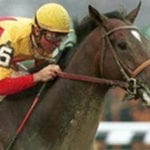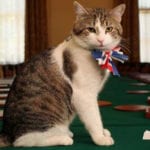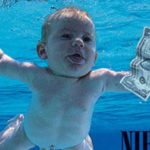 History
History  History
History  Health
Health 10 Everyday Activities That Secretly Alter Consciousness
 History
History Top 10 Historical Disasters Caused by Someone Calling in Sick
 Animals
Animals 10 New Shark Secrets That Recently Dropped
 Movies and TV
Movies and TV 10 Forgotten Realities of Early Live Television Broadcasts
 Technology
Technology 10 Stopgap Technologies That Became Industry Standards
 Weird Stuff
Weird Stuff 10 Wild Facts About Taxidermy That You Probably Didn’t Know
 Travel
Travel 10 Beautiful Travel Destinations (That Will Kill You)
 Miscellaneous
Miscellaneous 10 Modern Marriage Rituals Born from Corporate Branding
 Weird Stuff
Weird Stuff Ten Bizarre Visions of 2026 from Fiction
 History
History 10 “Modern” Problems with Surprising Historical Analogs
 Health
Health 10 Everyday Activities That Secretly Alter Consciousness
 History
History Top 10 Historical Disasters Caused by Someone Calling in Sick
Who's Behind Listverse?

Jamie Frater
Head Editor
Jamie founded Listverse due to an insatiable desire to share fascinating, obscure, and bizarre facts. He has been a guest speaker on numerous national radio and television stations and is a five time published author.
More About Us Animals
Animals 10 New Shark Secrets That Recently Dropped
 Movies and TV
Movies and TV 10 Forgotten Realities of Early Live Television Broadcasts
 Technology
Technology 10 Stopgap Technologies That Became Industry Standards
 Weird Stuff
Weird Stuff 10 Wild Facts About Taxidermy That You Probably Didn’t Know
 Travel
Travel 10 Beautiful Travel Destinations (That Will Kill You)
 Miscellaneous
Miscellaneous 10 Modern Marriage Rituals Born from Corporate Branding
 Weird Stuff
Weird Stuff Ten Bizarre Visions of 2026 from Fiction
Top 10 of the Most Hilarious Song Titles Ever
Music has the ability to evoke all kinds of emotions in us, but all too few of them make us laugh. Fewer still have titles that induce a guffaw, chortle, or eye-roll. Here are 10 of them that might.
Related: 10 Celebrities And The (Mostly) Hilariously Bad Songs They Released
10 “You Can’t Have Your Kate and Edith Too,” The Statler Brothers (1967)
In October of 2020, Twitter lit up after people discovered they’d been misquoting a popular idiomatic proverb all their life. The popular English proverb is “you can’t have your cake and eat it too,” which means, according to the Cambridge Dictionary, “to have or do two good things at the same time that are impossible to have or do at the same time.” The shorter version would be “you can’t have it both ways.”
Some Twitter users claimed the proverb was really, “you can’t have your Kate and Edith too.” One user was incredulous: “So the saying is really you can’t have your Kate and Edith too? I know I ain’t the only one saying, ‘you can’t have your cake and eat it too.’” Another: “How am I just now learning this at 23?” Another: “It’s definitely the cake one. ‘Kate and Edith Too?’ It don’t make no sense.”
The source of the confusion is a 1967 song from the country and gospel group The Statler Brothers that cleverly made a pun of the proverb. The song is about two guys who go on a double date with Edith and Kate. The trouble started at the drive-in: “You were kissing on Kate/ She wouldn’t let you go/ I looked at Edith, started feeling bold/ I found your big hairy hand holding on/ to the hand I was trying to hold/ You can’t have your Kate and Edith too.”
The singer is sent for popcorn, and when he returns, he finds his date, Edith, in the back with Kate and the other guy. The song ends with “Years have passed since that first date/ I married Edith, you married Kate/ Now every night when I come home/ Your car’s in the driveway, Kate’s in the car/ And you and Edith are in the house alone/ You can’t have your Kate and Edith too.”[1]
9 “It’s Hard to Be Religious When Certain People Are Never Incinerated by Bolts of Lightning,” Mayday Parade (2018)
A number of song titles the alternative rock band Mayday Parade has released could make this list, with their dark (sometimes very dark) humor and turns of phrase. Titles like “Happy Endings Are Stories That Haven’t Ended Yet,” “I’d Hate to Be You When People Find Out What This Song Is About,” “Champagne’s for Celebrating (I’ll Have a Martini),” “Call Me Hopeless, Not Romantic,” and—my personal favorite—”If You Can’t Live without Me, Why Aren’t You Dead Yet?” Some of their titles are so bleak, they drip with darkness: “The Torment of Existence Weighed against the Horror of Nonbeing.” One song title is both intriguing and humorous: “It’s Hard to Be Religious When Certain People Are Never Incinerated by Bolts of Lightning.”
Songwriter Derek Sanders admits this song was “a little more angry than anything we’ve done before. I wrote it shortly after the 2016 presidential election when Trump won. I was just kind of horrified something like that was even possible—not that it’s all directed towards him, necessarily, but that’s kind of the mindset I was in.” Sanders does not elaborate on who that anger was directed at, but the song is clearly a ballad of disillusionment and disappointment.
The title is a quote from the book Attack of the Deranged Mutant Killer Monster Snow Goons by Bill Waterson, cartoonist for Calvin and Hobbs. While you will search in vain to find the title among the song’s lyrics, the title leaves little doubt about what the song is about. But Sanders is quick to add, “it’s not all dark. There is, at least to me, a hopeful outlook towards the future and trying to appreciate what we do have. It’s not all angry.”[2]
8 “(I’d a Wrote You a Letter But) I Couldn’t Spell !✱¢#!” Wayne Carson (1968)
Originally written and recorded by country singer Wayne Carson Thompson, better known as just Wayne Carson, “I Couldn’t Spell !✱¢#! [usually a raspberry sound]” was quickly snatched up and covered by the pop novelty band Sam the Sham and the Pharaohs. Sam’s band already had two Billboard Top 10 hits—”Woolly Bully” and “Li’l Red Riding Hood”—under its belt, as well as covers for classic songs like the Coaster’s 1958 hit “Yakety Yak.” Sam and the Pharaohs rewrote Carson’s work into a novelty pop song, the version that’s usually remembered today. But it was 1968, and irreverent novelty songs were giving way to Vietnam protest songs. “I Couldn’t Spell !!*@!” never reached Billboard’s Hot 100, peaking at #122. Sam’s band disbanded soon after.
Clearly, this is a break-up song, the singer angry because his/her love interest was unfaithful. The singer progresses from drawing a “mustache on your picture” to finding the “tree where we carved our names and chopped that jive thing down.” Unsatisfied, the singer then “burned the tie you gimme” and wrote the ex-lover’s name and, presumably, phone number on the walls of 34 phone booths (back when such things were abundant).[3]
7 “You’re the Reason Our Kids Are Ugly,” Loretta Lynn and Conway Twitty (1978)
Between 1971 and 1988, Loretta Lynn and Conway Twitty collaborated on 11 studio albums and a dozen singles, becoming one of the most awarded duos in country music history. Even in concert, the pair had a chemistry that gave their love song duets a realism that fooled many fans into thinking they were romantically entangled. This was reinforced when many of their songs portrayed them as a couple. One such song is “You’re the Reason Our Kids Are Ugly,” where they bicker as a tired, life-torn couple with too many kids and too little money.
Conway would sing, “you’re the reason I changed to beer from soda pop,” and Loretta retorts, “An’ you’re the reason I never go to the beauty shop.” They both lament: “I guess that we won’t ever have, everything we need, ’cause when we get ahead, it’s got another mouth to feed.” The kids, Loretta sings, are “the reason my good looks and my figure’s gone.” Conway adds, “and that’s the reason I ain’t got no hair to comb.” They both sing: “An’ you’re the reason our kids are ugly, little darling/ …But I love you just the same.”[4]
6 “Our Lawyer Made Us Change the Name of This Song So We Wouldn’t Get Sued,” Fall Out Boy (2005)
Many have mistakenly believed Fall Out Boy’s name derives from Vault Boy, the mascot for the multiplayer online role-playing game Fallout. But the band is actually named after a character from the animated series The Simpsons. Introduced in a 1990’s (7th season) episode “Bart the Genius,” Fall Out Boy is the sidekick to the 1920’s movie serial superhero Radioactive Man.
The influential pop-punk band is another group that could have more than one title on this list, such as “Reinventing the Wheel to Run Myself Over,” “A Little Less Sixteen Candles, A Little More ‘Touch Me,’” and “This Ain’t a Scene, It’s an Arms Race.” Their lyrics are pretty spectacular as well, with one of their best delivered in their 2005 “Sugar, We’re Going Down”: “I’m just a notch on your bedpost, but you’re just a line in a song.”
Fall Out Boy’s 2005 “Our Lawyer Made Us Change the Name of This Song So We Wouldn’t Get Sued” may sound like a gimmick to catch people’s attention, but it is perfectly legitimate. One rumor had it that the title that could’ve sparked a lawsuit was “I Loved You So Much More Before You Were a MySpace Whore,” but that was a joke printed in Rolling Stone magazine. The real original title was “My Name Is David Ruffin, and These Are The Temptations.”
The Temptations had formed in 1960, but by Christmas 1963, they had seen only minor success. This frustrated member Elbridge “Al” Bryant, who bristled at the rigorous rehearsals and performances and, after two altercations with other Temptations, was fired. Ruffin had been following the band, aspiring to be a Temptation, and in January 1964, he got his wish. Soon Ruffin took lead vocals with hits such as “My Girl,” “Ain’t Too Proud to Beg,” and “I Wish It Would Rain,” and the group found themselves crooning on American Bandstand and The Ed Sullivan Show.
But the fame—and cocaine—went to Ruffin’s head, and he demanded the group’s name be changed to David Ruffin and the Temptations as had been done with Diana Ross and the Supremes. Outraged, the group fired him. Afterward, Ruffin had some minor success on his own and was even inducted in the Rock and Roll Hall of Fame with five other Temptations, but he collapsed in a crack house in 1991 and was summarily dumped in front of a hospital where he died a few hours later.
Writer Paul Wentz wrote his song as a warning about the pitfalls of fame. “[It] was kind of supposed to be our nod at a bio piece on the Temptations and David Ruffin and where the separation lies between superstar and a megalomaniac.” Fall Out Boy’s lawyers quite rightly determined that Ruffin’s estate would sue them.[5]
5 “I’m Gonna Hire a Wino to Decorate Our Home,” David Frizzell (1982)
Country music has a long history of novelty songs with thigh-slapping titles. For instance, there’s Hank Thompson’s 1966 song “He’s Got a Way With Women (And He Just Got Away With Mine)” and Charley Walker’s 1967 un-politically correct song “I Wouldn’t Take Her to a Dog Fight (Even If I Thought That She Could Win). Or Deanna Carter’s “Did I Shave My Legs for This?” Or Charlotte “Charly” McClain’s” Lay Something on My Bed Besides a Blanket.” And my favorite, Johnny Cash’s “Flushed from the Bathroom of Your Heart.” But if “I’m Gonna Hire a Wino to Decorate Our Home” has you scratching your head, maybe some elaboration is needed.
Written by the legendary songwriter Dewayne Blackwell who wrote hits for Roy Orbison, the Everly Brothers, Bobby Vinton, and, notably, “Friends in Low Places” for Garth Brooks, Blackwell shopped his “I’m Gonna Hire…” demo around for a record deal. There were no takers until David Frizzell heard it. Frizzell had been living in the shadow of his older brother, country music star Lefty Frizzell. “I think anybody who’s a brother of a walking legend is liable to feel a little inferior,” David said in an interview. “Lefty had accomplished so many things by the time he was 21 years old and had just become a world power in country music. There’s no way not to feel some sort of pressure.”
David had had some success singing duets with his sister-in-law Shelly West, but both Frizzell and West decided to pursue solo careers. When David heard Blackwell’s demo, he and his agent called Blackwell to secure the rights to record it. It became David’s first and only solo number-one record.
The song is about a husband who’d spend his evenings and paycheck at the bar. One morning he returned home to find his wife had come up with a clever idea: she would turn their home into a bar so that he and his paycheck would stay home. “We’ll take out the dining room table, and put a bar along that wall/ And a neon sign, to point the way to our bathroom down the hall.” She added: “We’ll rip out all the carpet, and put sawdust on the floor/ Serve hard-boiled eggs and pretzels, so I won’t have to cook no more.” And if that wasn’t good enough, she sweetened the deal: “You’ll get friendly service, and for added atmosphere/I’ll slip on something sexy, and I’ll cut it down to here/ Then you can slap my bottom, every time you tell a joke/ Just as long as you keep tipping, well, I’ll laugh until your broke… And when you run out of money, you’ll have me to thank/ You can sleep it off next morning, when I’m putting it in the bank.”[6]
4 “The Weather is Here, Wish You Were Beautiful,” Jimmy Buffett (1981)
Jimmy Buffett has made a career of witticisms, the kind that end up on wall posters. Some of his gems are in his lyrics: “Laugh till You Cry, Cry Till You Smile” (Boomerang Love, 1989), “Wrinkles Only Go Where the Smiles Have Been” (Barefoot Children in the Rain, 1995), and “Is it Ignorance or Apathy?… I Don’t Know, and I Don’t Care” (I Don’t Know and I Don’t Care, 1999).
Some of them are in his song titles: “Happily Ever After (Now and Then),” “What If the Hokey-Pokey Is All It Really Is About?” “A Lot to Drink About,” and “If the Phone Doesn’t Ring, It’s Me.” He even imparts his wisdom in his books. “Searching is half the fun: life is much more manageable when thought of as a scavenger hunt as opposed to a surprise party,” he wrote in his autobiography A Pirate Looks at Fifty. In his novel, A Salty Piece of Land, he writes: “Grief is like the wake behind a boat. It starts out as a huge wave that follows close behind you…And after a long time, the waters of your life get calm again, and that is when the memories of those who have left begin to shine as bright and as enduring as the stars above.”
As a play on the old postcard line, “the weather is beautiful, wish you were here,” Buffett titled his song about being in the right place with the wrong person—“The Weather is Here, Wish You Were Beautiful.” The song is about a man living the hectic lifestyle of the big city who wants to vacation somewhere tropical. But his girlfriend is too busy to go with him. So he goes alone, has a meaningless fling, but falls in love with his vacation spot. So he quits his New York job and moves there. The final line is probably a personal philosophy of Buffett: “And if it doesn’t work out, there’ll never be any doubt/ That the pleasure was worth all the pain.”
As for the title, there was nothing particularly romantic about its origin. “Graffiti in the bathrooms of good bars has always been a great source of material,” he said. “I think this one came from Captain Tony’s or the Napoleon House in New Orleans.”[7]
3 “Thanks for the Killer Game of Crisco Twister,” Minus the Bear (2002)
Crisco Twister has been a party game for decades, and it’s where the participants grease the Twister mat (and sometimes themselves) with Crisco or butter to make the game more challenging. There’s even a YouTube video of members of the band Nirvana and Smashing Pumpkins at a Boston bar called Bill’s Bar playing a half-hearted game of Crisco Twister on September 23, 1991. Die-hard Nirvana fans might recognize that date as the day before the release of Nirvana’s earth-shaking album Nevermind. Smashing Pumpkins also had just released their debut album Gish a few months before. It’s interesting to watch Kurt Cobain quietly planting hands and feet on the greasy colored circles the night before his world changed.
The members of Minus the Bear were just starting their musical careers when fellow Washingtonian Kurt Cobain committed suicide in their native city of Seattle. Whether the title “Thanks for the Killer Game of Crisco Twister” has anything to do with the famous Nirvana vs. Smashing Pumpkins bout is unknown. What is known is that it’s a perfect description not just of the song but Minus the Bear’s debut album, Highly Refined Pirates, on which the song appears. One reviewer said the songs on the album “revolve around drinking, partying and general kicking back. While these topics resemble what you might hear on country radio, [singer Jake] Snider delivers his lines as a relatable authority on the subject, i.e., you’ll appreciate his lyrics if you’re involved with what he’s singing about.” In short, the songs are the party soundtrack for parties.
Tracks like “Wanna Throw Up? Get Me Naked” and “Absinthe Party at the Fly Honey Warehouse” telegraph the upbeat party nature of the album. Two of the 14 tracks are one-minute instrumentals with titles nothing more than quotes from the 1997 movie Starship Troopers. The “Thanks for the Killer…” song opens with, “And then we all bought yachts/ And raced up to the islands/ Moored them at the docks/ Leading up to our cabins/ We raced up just to slow down/ And we drank some, man we always do/ Sunglasses to the water/ Our girls are lookin’ so good.”
If you’ve ever wondered how bands chose a name, Minus the Bear’s story is enlightening. “A friend of the band had gone on a date,” Jake Snider explained, “and one of us asked him afterwards how the date went. Our friend said, ‘You know that TV show from the ’70s [called] B.J. and The Bear? It was like that…minus the bear.’”[8]
2 “Get Off the Table, Mabel (The Two Dollars Is for fhe Beer),” Bull Moose Jackson and the Flashcats (1984)
No one seems to know where this joke originated, but the earliest recorded instance of it used in a song appears to be December 1949, when a studio band named Pearl Boys released “Get Off the Table Mabel,” written by pianist and singer Larry Vincent. His “Get Off the Table Mabel” was about Johnny, whose wife Mabel was a dancer at a burlesque show, who garnered money from her husband by dancing on the kitchen table. “The twists and turns that you invent will help us pay the rent,” the husband sings. “Go out and get it Mabel, I’m down to my last cent.” His final plea: “Get off the table Mabel, shake your whatsits anywhere but here. Get off the table Mabel, my two bucks are for beer.”
At the same time, an off-shoot of Rhythm and Blues—called “Dirty Blues”—was gaining popularity in nightclubs all over America. Dealing with subjects usually too obscene to record, some brave souls did put their songs on vinyl and still survive today. Perhaps the earliest example is Gertrude “Ma” Rainey’s bawdy “Shave ‘Em Dry“—slang for sex without foreplay—released by Paramount Records in 1924. In 1943, bandleader Lucky Millinder hired a 24-year-old saxophonist named Benjamin Jackson that he thought was built like a bull moose. The moniker stuck.
Bull Moose Jackson went on to release solo projects such as “I Love You, I Do”—considered the first R&B single to sell a million copies—and the dirty blues hit “I Want a Bowlegged Woman.” In 1952, Bull Moose released “Big Ten-Inch Record,” a reference to 10-inch vinyl records prevalent at the time, where he’d sing about his woman who loved his “big ten-inch…record.” If that sounds familiar, Aerosmith covered it for their Toys in the Attic album.
In 1984, Moose and his songs had a minor revival when a Pittsburgh band known as the Flashcats recorded “Get Off the Table, Mabel (The Two Dollars Is for the Beer)” with the 65-year-old Moose. This version is substantially different than Larry Vincent’s version, singing about a “diner on the edge of town” where Mabel is a waitress. Bull Moose sings that Mabel has experience as a stripper and has to be reminded she can’t dance at the diner. “Get off the Table, Mabel, the two dollars is for the beer/ The service is good, I would if I could, but you can’t do that around here,” Bull Moose croons.[9]
1 “2021: A Personal Space Odyssey,” Pet Symmetry (2021)
When Evan Weiss, Erik Czaja, and Marcus Nuccio formed the band Pet Symmetry in 2012, they were already firmly established in the resurgence of the Emo movement. Nuccio and Czaja were members of the Chicago-based Dowsing, and Weiss had played in various emo and underground punk rock bands and his solo project Into it. Over it. for more than a decade. From the start, Pet Symmetry established their trademark of serious introspective couched in clever word-play and sung in light, playful choruses.
Their name is a pun on Stephen King’s 1983 book Pet Sematary, and their song titles are heavy on eye-rollers. Titles like “Cereal Killer,” “Window Pain,” “Ends With Benefits” (a pun on the phrase “friends with benefits”), “Boldly Going Nowhere” (a pun on the Star Trek phrase “boldly go where…”), and “Simply Irresponsible” (a pun on Robert Palmer’s 1988 hit “Simply Irresistible”).
In their debut EP released in 2013, they demonstrated another of their trademarks: lengthy song titles. The title of the two-track EP was Two Songs About Cars, Two Songs with Long Titles. Just as promised, the two songs were “Please Don’t Tell My Father That I Used His 1996 Honda Accord to Destroy the Town of Willow Grove, Pennsylvania in 2002” (happily, Willow Grove was not destroyed in 2002 or any other year) and “A Detailed and Poetic Physical Threat to the Person Who Intentionally Vandalized My 1994 Dodge Intrepid behind Kate’s Apartment.”
The latter song starts by describing his Dodge Intrepid: “A silver surface worn into rust/ From nights in a neighborhood I started to trust.” The Intrepid is vandalized, the perpetrator leaving a note: “To you, it’s just Scotch Tape and a heightened sense of cowardly pride/ A U-lock, some entitlement to keep by your side.” The singer then melodically and sweetly sings: “Have you ever felt your perfect teeth make a connection with Chicago concrete?”
Fast-forward eight years to 2021, and the band turns from personal, introspective songs to more extrospective interpretations of the chaotic previous year in their third LP, Future Suits. There’s “Bootlicker” on law enforcement, “Simply Irresponsible” on political gridlock, and “Pet Synergy” on economic irresponsibility.
The COVID pandemic is there too, in the song “2021: A Personal Space Odyssey.” The song posits that the world is falling apart as we—like Nero—fiddle while Rome burns. “The Earth wants what it wants, and it’ll take what it gets,” Pet Symmetry sings, and adds ominously: “once the wheels leave the ground, we all own the ride.” Meanwhile, we “sit on the sidelines and place your bets” “while we wait in pajamas for further news.”[10]








